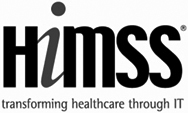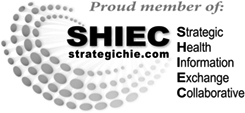Community Health Record – Behavioral Health Integration
In 2017, Reliance will launch a consent model that supports sharing protected substance use treatment information based on the patient’s signed informed consent or release of information. Reliance’s Community Health Record provides a query-based exchange environment whereby providers who have a relationship to a patient and a need to know their health information may query Reliance and receive a community record that aggregates information from any participants who have treated the same patient and who contribute information to Reliance. The new consent model helps providers care for their patients more holistically based on the patient’s wishes. Managing patient consent in Reliance is fully compliant with State and Federal law and supports all necessary auditing and reporting to maintain patient confidentiality.
eReferrals
Reliance is launching a new experience for our eReferrals users. In 2017, an automated referrals application will be integrated with the Community Health Record. This seamless approach offers great benefits:
- Integration with the Community Health Record, which means that the patient’s demographic information will automatically populate the eReferral
- Transitions of Care Compliance:
- When a user’s EHR is connected with Reliance, a care summary is sent to Reliance automatically every time a patient visit is closed. The care summary automatically becomes part of the referral, based on user preference, making every referral compliant for Meaningful Use (MU) transitions of care.
- Reports can be generated from Reliance that provide the necessary reporting that can be used to support MU compliance reporting for incentive payments (sent with care summary from CEHRT for named patient and received by named recipient for the referred patient).
- Linking to the patient’s chart in the Community Health Record allows the referred-to provider to easily access the patient’s health history, including lab results, radiology reports, hospital visits and other health care visits.
- Workflow efficiencies:
- User friendly features and functions, with faster response times and easy access patient information;
- Enhanced messaging means fewer phone calls needed to support coordination among referring organizations; and
- Flexibility in creating referral templates and forms to support more complete referrals every time.
Alerts and Notifications
Unlike other notification or alerting applications, Reliance combines a broad and deep set of data to provide valuable, real-time insight for managing high-risk or near-high-risk patients. Reliance Notifications can be generated from any combination of the following types of information:
Events – Patient/Member was admitted to the emergency department or hospital or discharged from an emergency visit or hospital stay.
Clinical – Patient/Member had a positive pregnancy test and is anemic; patient was diagnosed with CHF and patient’s blood pressure is approaching upper limits; patient’s BMI has exceeded limit for height and gender and also has a HbA1c approaching outer limits of control; patient has family history of colon cancer, etc.
Behavioral – Patient/Member’s mental health diagnosis, medicine assisted treatment, depression screening, medications, etc.
Social – Patient/Member is or has been homeless; patient has history of domestic violence; patient has food insecurity, patient is unemployed, etc.
Gaps in Care – Patient/Member has not had recommended treatments or screenings within age and gender specific evidence-based guidelines (immunizations, tobacco screening, depressing screening, colonoscopy, PAP smear, mammography, etc.)
Reliance Insight
Reliance Insight offers participants the capability to enhance the information and capacity of their EHR to support population health management and clinical quality metrics (CQM) management and reporting.
Reliance Insight improves revenue, streamlines and enhances reporting for quality metrics, identifies gaps in care, identifies social determinants of health and supports provider attribution and risk management. Organizations that have risk sharing or value-based contracts are required to meet a set of quality metrics for which they are paid. Doing exceptionally well in meeting these metrics often results in incentive payments allowing providers to maximize revenue. Furthermore, patients who are at risk for chronic and acquired diseases can be identified early allowing their conditions to be managed, preventing costly, adverse events.
Reliance Insight normalizes data across all contributors in the health information exchange and indexes all data elements, including discrete values (e.g., lab results), text (e.g., allergies, problems, provider notes, radiology reports), and codes (e.g., medications, diagnosis, procedure). That means that any and all data in Reliance can be reported upon (provided there is a relationship between the patient and the Reliance participating organization in compliance with law).
Results Delivery
Reliance streamlines how information gets to an ordering provider (and other providers who are copied on the test result). Through a single, user-configurable interface, Reliance fully automates the delivery of clinical information to providers’ electronic health records (EHRs) from all data sources that contribute to Reliance; saving time and money, and improving the speed in which results are received. A Reliance user without an EHR can utilize web-based tools to access their patient results/reports in real-time via the clinical inbox.
Data Routing Services
Reliance supports providers who are contracted to report to third parties, such as CCOs, health plans and population health organizations. Member files are reported to Reliance, at mutually agreed upon intervals (e.g., daily, weekly, monthly), which establishes the relationship between the third party and the member/patient. For the period of eligibility/enrollment, the member’s clinical data is routed to the third party. Reliance takes into considerations information not legally permissible for routing, such as self-pay, opt-out or protected information that requires patient consent (e.g., substance use treatment information (SUTI)).
Direct Secure Messaging
For those who do not have a way to securely communicate across organizations, Reliance provides a “Direct” accredited secure messaging system, which can also be used to communicate with non-HIPAA-covered entities, such as social services, or when data is specially protected, like substance abuse treatment. Reliance users have access to a statewide Direct address listing, provided by CareAccord.



